#red team blues
Text
TOR WRAPPED 2023
Books for every Spotify Wrapped listener class!

VAMPIRE
Masters of Death by Olivie Blake
Starling House by Alix E. Harrow
Mordew by Alex Pheby
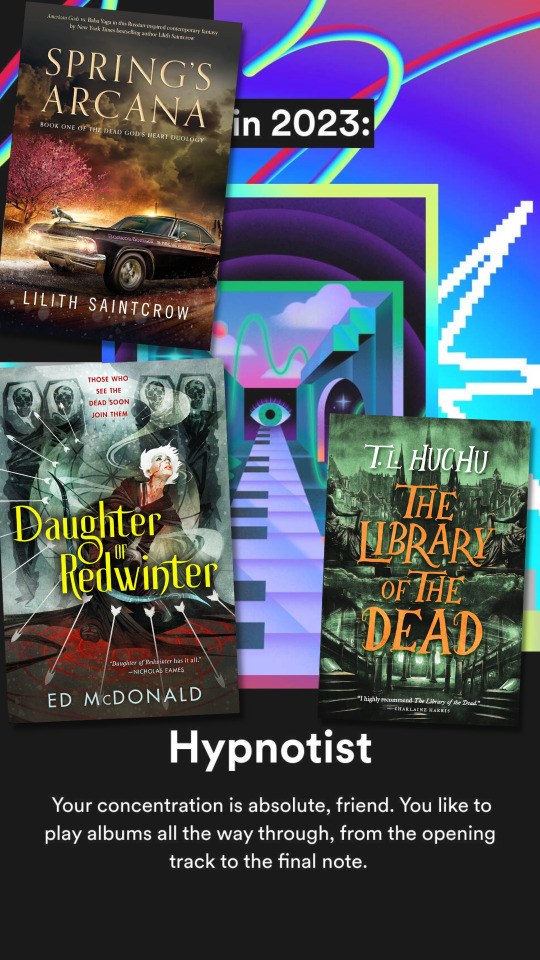
HYPNOTIST
The Library of the Dead by T. L. Huchu
Daughter of Redwinter by Ed McDonald
Spring’s Arcana by Lilith Saintcrow

ALCHEMIST
The Bone Orchard by Sara A. Mueller
The Genesis of Misery by Neon Yang
The Echo Wife by Sarah Gailey

SHAPESHIFTER
Thornhedge by T. Kingfisher
The Warden by Daniel M. Ford
Wolfsong by TJ Klune
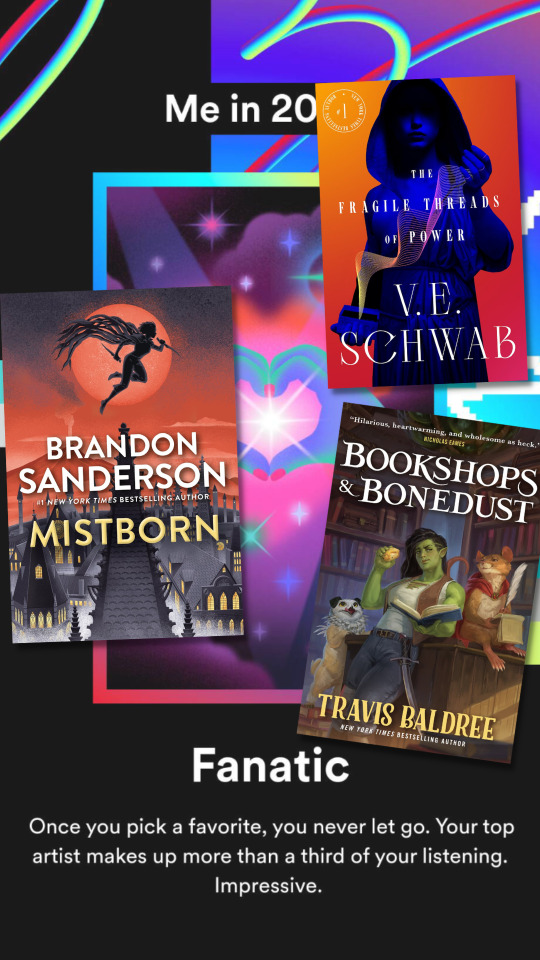
FANATIC
Mistborn by Brandon Sanderson
Bookshops & Bonedust by Travis Baldree
The Fragile Threads of Power by V. E. Schwab

TIME TRAVELER
Kinning by Nisi Shawl
She Who Became the Sun by Shelley Parker-Chan
The Invisible Life of Addie LaRue by V. E. Schwab

MASTERMIND
The Atlas Six by Olivie Blake
Red Team Blues by Cory Doctorow
Exadelic by Jon Evans

COLLECTOR
The Wolfe at the Door by Gene Wolfe
Cassiel’s Servant by Jacqueline Carey
The Great Hunt by Robert Jordan
#spotify#spotify wrapped#tor books#the great hunt#the wolfe at the door#cassiel's servant#jacqueline carey#robert jordan#gene wolfe#exadelic#jon evans#red team blues#cory doctorow#the atlas six#olivie blake#kinning#nisi shawl#she who became the sun#shelley parker-chan#the invisible life of addie larue#v e schwab#mistborn#brandon sanderson#bookshops & bonedust#travis baldree#the fragile threads of power#thornhedge#t kingfisher#ursula vernon#wolfsong
5K notes
·
View notes
Text
Kickstarting “The Bezzle” audiobook, sequel to Red Team Blues
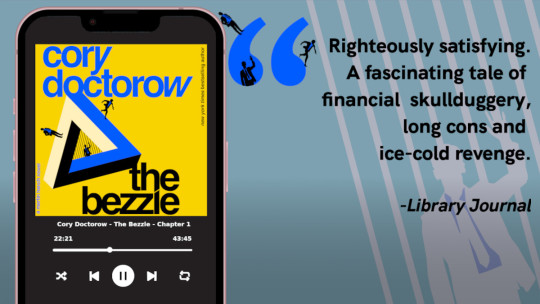
I'm heading to Berlin! On January 29, I'll be delivering Transmediale's Marshall McLuhan Lecture, and on January 30, I'll be at Otherland Books (tickets are limited! They'll have exclusive early access to the English edition of The Bezzle and the German edition of Red Team Blues!).

I'm kickstarting the audiobook for The Bezzle, the sequel to last year's Red Team Blues, featuring Marty Hench, a hard-charging, two-fisted forensic accountant who spent 40 years in Silicon Valley, busting every finance scam hatched by tech bros' feverish imaginations:
http://thebezzle.org
Marty Hench is a great character to write. His career in high-tech scambusting starts in the early 1980s with the first PCs and stretches all the way to the cryptocurrency era, the most target-rich environment for scamhunting tech has ever seen. Hench is the Zelig of tech scams, and I'm having so much fun using him to probe the seamy underbelly of the tech economy.
Enter The Bezzle, which will be published by Tor Books and Head of Zeus on Feb 20: this adventure finds Marty in the company of Scott Warms, one of the many bright technologists whose great startup was bought and destroyed by Yahoo! (yes, they really used that asinine exclamation mark). Scott is shackled to the Punctuation Factory by golden handcuffs, and he's determined to get fired without cause, so he can collect his shares and move onto the next thing.
That's how Scott and Marty find themselves on Catalina island, the redoubt of the Wrigley family, where bison roam the hills, yachts bob in the habor and fast food is banned. Scott invites Marty on a series of luxury vacations on Catalina, which end abruptly when they discover – and implode – a hamburger-related Ponzi scheme run by a real-estate millionaire who is destroying the personal finances of the Island's working-class townies out of sheer sadism.
Scott's victory is bittersweet: sure, he blew up the Ponzi scheme, but he's also made powerful enemies – the kinds of enemies who can pull strings with the notoriously corrupt LA County Sheriff's Deputies who are the only law on Catalina, and after taking a pair of felony plea deals, Scott gets the message and never visits Catalina Island again.
That could have been the end of it, but California's three-strikes law – since rescinded – means that when Scott picks up one more felony conviction for some drugs discovered during a traffic stop, he's facing life in prison.
That's where The Bezzle really gets into gear.
At its core, The Bezzle is a novel about the "shitty technology adoption curve": the idea that our worst technological schemes are sanded smooth on the bodies of prisoners, mental patients, kids and refugees before they work their way up the privilege gradient and are inflicted on all of us:
https://pluralistic.net/2023/04/12/algorithmic-wage-discrimination/#fishers-of-men
America's prisons are vicious, brutal places, and technology has only made them worse. When Scott's prison swaps out in-person visits, the prison library, and phone calls for a "free" tablet that offers all these services as janky apps that cost ten times more than they would on the outside, the cruelty finds a business model.
Working inside and outside the prison Marty Hench and Scott Warms figure out the full nature of the scam that the captive audience of prisoners are involuntary beta-testers for, and they discover a sprawling web of real-estate fraud, tech scams, and offshore finance that is extracting fortunes from the hides of America's prisoners and their families. The criminals who run that kind of enterprise aren't shy about fighting for what they've got, and they're more than happy to cut some of LA County's notorious deputy gangs in for a cut in exchange for providing some kinetic support for the project.
The Bezzle is exactly the kind of book I was hoping I'd get to write when I kicked off the Hench series – one that decodes the scam economy, from music royalties to prison videoconferencing, real estate investment trusts to Big Four accounting firm bogus audits. It's both a fast-moving, two-fisted crime novel and a masterclass on how the rich and powerful get away with both literal and figurative murder.
It's getting a big push from both my publishers and I'll be touring western Canada and the US with it. The early reviews are spectacular. But despite all of this, I had to make my own audiobook for it, which I'm pre-selling on Kickstarter:
http://thebezzle.org
Why? Because Audible – Amazon's monopoly gatekeeper to the audiobook world, with more than 90% of the market – refuses to carry my work.
Audible uses Digital Rights Management to lock every audiobook they sell to their platform. Legally, only an Audible-authorized app can decrypt and play the audiobooks they sell you. Distributing a tool that removes Audible DRM is a felony under Section 1201 of the 1998 DMCA.
That means that if you break up with Audible – delete your Audible apps – you will lose your entire audiobook library. And the fact that you're Audible's hostage makes the writers you love into their hostages, too. Writers understand that if they leave the Audible platform, their audience will have to choose between following them, or losing all their audiobooks.
That's how Audible gets away with abusing its performers and writers, up to and including the $100m Audiblegate wage-theft scandal:
https://www.audiblegate.com/
Audible can steal $100m from its writers…and the writers still continue to sell on the platform, because leaving will cost them their audience.
This is canonical enshittification: lock in users, then screw suppliers. Lots of companies abuse DRM to do this, but none can hold a candle to Amazon, who understand that the DMCA is a copyright law that protects corporations at the expense of creators.
Under DMCA 1201 commercial distribution of a "circumvention device" carries a five-year prison sentence and a $500,000 fine. That means that if I write a book, pay to have it recorded, and then sell it to you through Audible, I am criminally prohibited from giving you the tool to take it from Audible to another platform. Even though I hold the copyright to that work, I would face a harsher sentence than you would if you simply pirated the audiobook from some darknet site. Not only that: if you shoplifted the audiobook in CD form, you'd get a lighter sentence than I, the copyright holder, would receive for giving you a tool to unlock it from Amazon's platform! Hell, if you hijacked the truck that delivered the CD, you'd get off lighter than I would. This is a scam straight out of a Marty Hench novel.
This is batshit. I won't allow it. My books are licensed on the condition that they must not be sold with DRM. Which means that Audible won't sell my books, which means that my publishers are thoroughly disinterested in paying thousands of dollars to produce audiobooks of my titles. A book that isn't sold in the one store than accounts for 90% of all sales is unlikely to do well.
That's where you come in. Since 2020, I've used Kickstarter to pre-sell five of my audiobooks (I wrote nine books during lockdown!). All told, I've raised over $750,000 (gross! but still!) on these crowdfunders. More than 20,000 backers have pitched in! The last two of these books – The Internet Con and The Lost Cause – were national bestsellers.
This isn't just a way for me to pay off a lot of bills and put away something for retirement – it's proof that readers care about supporting writers and don't want to be locked in by a giant monopolist that depends on its drivers pissing in bottles to make quota.
It's a powerful message about the desire for something better than Amazon. It's part of the current that is driving the FTC to haul Amazon into court for being a monopolist, and also part of the inspiration for other authors to try treating Amazon as damage and routing around it, with spectacular results:
https://www.kickstarter.com/projects/dragonsteel/surprise-four-secret-novels-by-brandon-sanderson

And I'm doing it again. Last December, I went into Skyboat Media's studios where Gabrielle De Cuir directed @wilwheaton, who reprised his role as Marty Hench for the audiobook of The Bezzle. It came out amazing:
https://archive.org/details/bezzle-sample
Now I'm pre-selling this audiobook, as well as the ebook and hardcover for The Bezzle. I'm also offering bundles with the ebook and audiobook for Red Team Blues (naturally these are all DRM-free). You can get your books signed and personalized and shipped anywhere in the world, courtesy of Book Soup, and I've partnered with Libro.fm to deliver DRM-free audiobooks with an app for people who don't want to mess around with sideloading.
I've also got some spendy options for high rollers. There's three chances to name a character in the next Hench novel (Picks and Shovels, Feb 2025). There's also five chances to commission a Hench short story about your favorite tech scam, and get credited when the story is published.
The Kickstarter runs for the next three weeks, which should give me time to get the hardcopy books signed and shipped to arrive around the on-sale date. What's more, I've finally worked out all the post-Brexit kinks with shipping my UK publisher's books to EU backers. I'm working with Otherland Books to fulfill those EU orders, and it looks like I'm going to be able to sign a giant stack of those when I'm in Berlin later this month to give the annual Marshall McLuhan lecture at the Canadian embassy:
https://transmediale.de/en/2024/event/mcluhan-2024
Red Team Blues and its sequels are some of the most fun – and informative – work I've done in my quarter-century career. I love how they blend technical explanations of the scam economy with high-intensity technothrillers. That's the the same mix as my bestselling YA series Little Brother series – but these are firmly adult novels.
The Bezzle came out great. I hope you'll give it a try – and that you'll come out to see me in late February when I hit the road with the book! Here's that Kickstarter link again:
http://thebezzle.org

If you'd like an essay-formatted version of this post to read or share, here's a link to it on pluralistic.net, my surveillance-free, ad-free, tracker-free blog:
https://pluralistic.net/2024/01/10/the-bezzle/#marty-hench
#pluralistic#kickstarter#audible#the bezzle#bezzles#prison tech#disciplinary technology#crowdfunding#wilw#wil wheaton#audiobooks#publishing#science fiction#marty hench#martin hench#red team blues#shitty technology adoption curve#reits
661 notes
·
View notes
Text
Red Team Blues
A very novel novel, reviewed
tl;dr - it's a good book and if detective stories or thrillers are of interest to you, I would recommend checking it out.
Warning: possible minor spoilers below. If you want to go in blind, stop reading.
A mixture of a noir detective story and a cyber dystopian alternate reality nearly indistinguishable from our own, Red Team Blues is a roller coaster ride. The story follows our hero, Martin "Marty" Hench, a 67-year-old bachelor forensic accountant for hire on his last job before retirement. A prodigious sleuth at finding assets that some people would rather stay hidden, he has had a long and storied career stretching back to the beginnings of Silicon Valley. When Marty's old friend Danny Lazer calls in a favor to discreetly retrieve some stolen cryptographic keys that allow for control over Danny's revolutionary new blockchain system, Marty diligently works to find the keys. Fortunately, Marty is good at his job. He returns the keys and receives his payment for finding the assets: a cool 300 million dollars. Unfortunately, he also happens to find some dead bodies along with said assets. Consequently, he finds himself in a race against time to solve the mystery of what really happened and to clear his name before either the family of the dead or the people they double-crossed take him out.
The story is not just a gumshoe thriller taken on the road, but also a commentary about Silicon Valley, the impacts that technology has on our world and the people in it, and the differences between the haves and have-nots. It touches on the difficulties of playing defense (the blue team), the ease of playing the offense (the red team), and the benefits of playing to your strengths.
The characters are well written and feel like real, actualized people. They have their own lives, their own experiences, and their own voices. And Marty has to rely on them. He can't keep himself safe without the help of friends and strangers, and he does what he can to help keep them safe in return.
Ultimately, it's a masterfully written book (and well narrated by Wil Wheaton) that is hard to put down. I listened to the audiobook nearly non-stop. When it was done, I had to fight the urge from starting it back from the beginning. I'm truly excited that this is the beginning of a series, and especially one that has the interesting twist where it is, chronologically, the end of the story. As stated previously, Red Team Blues is a good book and if detective stories or thrillers are of interest to you, I would highly recommend checking it out.
You can get a copy of the ebook or audiobook directly from the author here. You can also buy the audiobook from libro.fm or get a physical copy from bookshop.org
#red team blues#Cory Doctorow#book review#beaches' speeches#noir detective#mystery novels#recommendations#book#book recommendations
23 notes
·
View notes
Text
Elevator Pitch:
Okay, but what if Travis McGee had been an early Silicon-Valley forensic accountant instead of a Korean-War commando? And was way less misogynist?
(As a 63-year-old retired computer security specialist who is enough of a gumshoe-detective fan to spot the homages to John D. MacDonald, Dashiell Hammett, Carl Hiassen and more, I don't remember the last time I felt this pandered to.)
6 notes
·
View notes
Text

Red Team Blues: A Martin Hench Novel
Red Team Blues: A Martin Hench Novel by Cory Doctorow
New York Times bestseller Cory Doctorow's RED TEAM BLUES is a grabby next-Tuesday thriller about cryptocurrency shenanigans that will awaken you to how the world really works.
Martin Hench is 67 years old, single and successful in a career stretching back to the beginnings of Silicon Valley. He’s a --- contain your excitement --- self-employed forensic accountant, a veteran of the long war between people who want to hide their money and people who want to find it. He knows the ins and outs of financial records that are designed to conceal rather than reveal. He’s as comfortable with social media as people a quarter his age, and he’s a fingertip-level expert in the techniques of money laundering and shell-company games practiced by Fortune 500 companies, extremely divorced billionaires and international crime lords alike. He also knows all the secret histories of charismatic company founders and Sand Hill Road VCs, because he was there at all of their beginnings. He’s not famous, except to the people who matter. He’s made some pretty powerful people happy in his time, and he’s been paid pretty well. It’s been a good life.
He’s always been on the red team, the attacking side, hunting down grifters, fraudsters and crooks. In this kind of combat, the defenders, the blue team, have to win 100% of the time, while the red team needs to win only once. But now, Martin has been roped into a job that’s more dangerous than anything he’s ever done before, and worse, he’s playing on the blue team. It’ll take every ounce of his skill to get out alive.
Sparkling, fast-moving and endlessly engaging, RED TEAM BLUES is a novel for anyone with a lively curiosity about how today’s world actually works.
0 notes
Text

8/52 Red Team Blues - A Review
Cory Doctorow has shaped my thinking and opinions a lot, ever since I started reading his writings on Tumblr.
I'm probably going to write a post in the future about him, actually - the way he outlines the root causes of ALL THE WORLD'S ILLS is intriguing. (1)
So, I was quite…curious, to see how that would be reflected in one of his actual books.
Too bad that I didn't consider this was a narrative book, not a sequence of essays 😂 (2)
Which doesn't mean it was a bad book - I actually liked it quite a bit!
But it's not an intellectual edifice that will let you see society in a new light.
What it is, is an interesting example of what cyberpunk looks like in the real world.
What I mean is; right now, we live in what would've been cyberpunk fifty years ago.
There are wars fought with drones and deep fakes, nascent AIs and crypto stakes.
This is the world that Martin Hench lives in, and works in as…. basically an investigative financial auditor, with a deep IT expertise.
Now; I consider myself as a technologically literate person (certainly in comparison to the average Italian citizen) - and even then, there were a lot of passages where I had to actively think of what was being said; this is not a book for people who “aren’t good with computers”. Or struggle with unfamiliar situations or mental flexibility.
Martin Hench deals with very obscure financial crimes that move billions of dollars around the world in ways that’d make actual financial experts spin.
That said; I did actually enjoy it. Especially since the first half of the book is basically a mystery novel - which gets solved!
Usually in a mystery you realize when the end is coming because the book physically stops - but here, the fallout from solving the mystery and how to deal with that take up the latter half of the book.
Overall, medium recommendation.
Usually, I'd sneer at this as a kind of conspiracy thinking, since seeing a singular cause for every bad thing is a hallmark of this- except he talks about incentive structures and naturally forming stable metastructures, which don't require superhuman competence from anyone.
You know, I'll start using emojis more and more know. I already do so at work, and they're useful in conveying information - specifically, tone.
0 notes
Text
One of my favorite authors Cory Doctorow wrote a really cool book that is a tech thriller about crypto currency that is somehow anti crypto currency set in the near future. I really recommend all his novels and they are all DRM free. If you can’t afford to buy a copy some of his books are legally online for free on his site. He’s a big supporter of maker culture and is a fan of fan fiction. Also Wil Wheaton is the audiobook narrator.
1 note
·
View note
Text

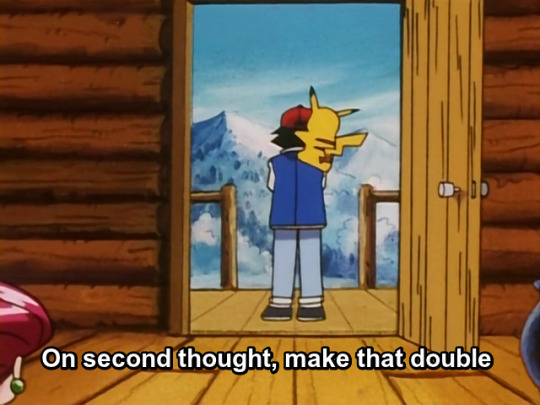




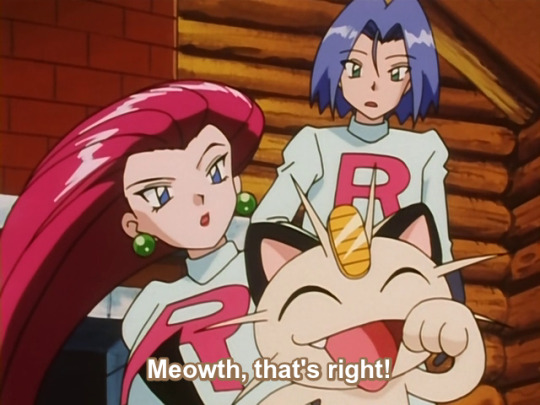


#pokemon#anime#nintendo#90s#gaming#video games#gameboy#cartoons#pokemon red#pokemon blue#pokemon yellow#kanto#team rocket#ash#pikachu#meowth#pokeani#anipoke#90's#funny#lol#humor#meme#nineties#retro#retrogaming#pokemon memes#nostalgia#nostalgic#jesse and james
5K notes
·
View notes
Text


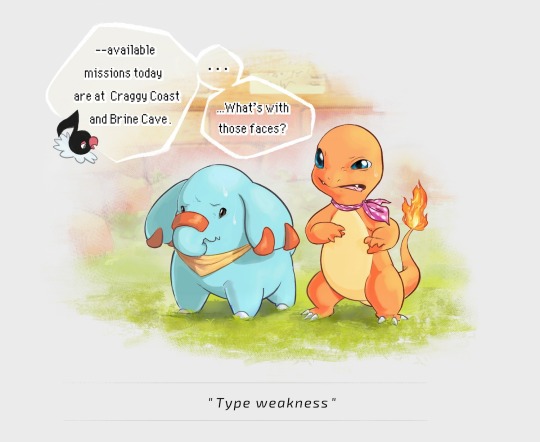

I played Pokémon Mystery Dungeon: Explorers of Sky for the first time a little while ago and was reminded of how very wholesome the PMD series is. So here are some completely self-indulgent drawings of my rescue team. Shout-out to anyone else that has played the game with this specific combo!
#varggarn#pmd#pokémon mystery dungeon#pokémon mystery dungeon: explorers of sky#pmd:eos#charmander#phanpy#pokémon#pokemon#pokémon fanart#trying out some slightly different rendering styles#games#fanart#me? posting art?#well it happens every once in a blue moon#if I can keep this enthusiasm for art a while longer#I might actually render the drawings I made of my PMD: Red Rescue Team duo many years ago#or even make some fanart of other characters in the games
3K notes
·
View notes
Text
this (Red Team Blues) is the second recent Doctorow novel i’ve inhaled instead of meeting deadlines. surely this isn’t good.
#the other one was Makers#which i stayed up till 3am for despite the need to church the next morning#now i have to wait a few years for the other Martin Hench pre/sequels#ahaha#cory doctorow#red team blues#paaa#fandom
0 notes
Text
1 note
·
View note
Text
Attentive readers might recall our Severely Unmoored Winter Holiday Quiz.
Well.
New year, new us, and we’re going to keep these seasonally wild quizzes churning until the heat death of the universe (And maybe beyond. It’ll depend on engagement).
Take this drastically off-kilter quiz to find out what you should read this spring!
#silly little quiz#tor books#one for my enemy#olivie blake#red team blues#cory doctorow#the first bright thing#j.r. dawson#unconquerable sun#furious heaven#kate elliott#cor[porate marketing let's f*cking go
22 notes
·
View notes
Text
The true post-cyberpunk hero is a noir forensic accountant

I'm touring my new, nationally bestselling novel The Bezzle! Catch me in TOMORROW (Apr 17) in CHICAGO, then Torino (Apr 21) Marin County (Apr 27), Winnipeg (May 2), Calgary (May 3), Vancouver (May 4), and beyond!

I was reared on cyberpunk fiction, I ended up spending 25 years at my EFF day-job working at the weird edge of tech and human rights, even as I wrote sf that tried to fuse my love of cyberpunk with my urgent, lifelong struggle over who computers do things for and who they do them to.
That makes me an official "post-cyberpunk" writer (TM). Don't take my word for it: I'm in the canon:
https://tachyonpublications.com/product/rewired-the-post-cyberpunk-anthology-2/
One of the editors of that "post-cyberpunk" anthology was John Kessel, who is, not coincidentally, the first writer to expose me to the power of literary criticism to change the way I felt about a novel, both as a writer and a reader:
https://locusmag.com/2012/05/cory-doctorow-a-prose-by-any-other-name/
It was Kessel's 2004 Foundation essay, "Creating the Innocent Killer: Ender's Game, Intention, and Morality," that helped me understand litcrit. Kessel expertly surfaces the subtext of Card's Ender's Game and connects it to Card's politics. In so doing, he completely reframed how I felt about a book I'd read several times and had considered a favorite:
https://johnjosephkessel.wixsite.com/kessel-website/creating-the-innocent-killer
This is a head-spinning experience for a reader, but it's even wilder to experience it as a writer. Thankfully, the majority of literary criticism about my work has been positive, but even then, discovering something that's clearly present in one of my novels, but which I didn't consciously include, is a (very pleasant!) mind-fuck.
A recent example: Blair Fix's review of my 2023 novel Red Team Blues which he calls "an anti-finance finance thriller":
https://economicsfromthetopdown.com/2023/05/13/red-team-blues-cory-doctorows-anti-finance-thriller/
Fix – a radical economist – perfectly captures the correspondence between my hero, the forensic accountant Martin Hench, and the heroes of noir detective novels. Namely, that a noir detective is a kind of unlicensed policeman, going to the places the cops can't go, asking the questions the cops can't ask, and thus solving the crimes the cops can't solve. What makes this noir is what happens next: the private dick realizes that these were places the cops didn't want to go, questions the cops didn't want to ask and crimes the cops didn't want to solve ("It's Chinatown, Jake").
Marty Hench – a forensic accountant who finds the money that has been disappeared through the cells in cleverly constructed spreadsheets – is an unlicensed tax inspector. He's finding the money the IRS can't find – only to be reminded, time and again, that this is money the IRS chooses not to find.
This is how the tax authorities work, after all. Anyone who followed the coverage of the big finance leaks knows that the most shocking revelation they contain is how stupid the ruses of the ultra-wealthy are. The IRS could prevent that tax-fraud, they just choose not to. Not for nothing, I call the Martin Hench books "Panama Papers fanfic."
I've read plenty of noir fiction and I'm a long-term finance-leaks obsessive, but until I read Fix's article, it never occurred to me that a forensic accountant was actually squarely within the noir tradition. Hench's perfect noir fit is either a happy accident or the result of a subconscious intuition that I didn't know I had until Fix put his finger on it.
The second Hench novel is The Bezzle. It's been out since February, and I'm still touring with it (Chicago tonight! Then Turin, Marin County, Winnipeg, Calgary, Vancouver, etc). It's paying off – the book's a national bestseller.
Writing in his newsletter, Henry Farrell connects Fix's observation to one of his own, about the nature of "hackers" and their role in cyberpunk (and post-cyberpunk) fiction:
https://www.programmablemutter.com/p/the-accountant-as-cyberpunk-hero
Farrell cites Bruce Schneier's 2023 book, A Hacker’s Mind: How the Powerful Bend Society’s Rules and How to Bend Them Back:
https://pluralistic.net/2023/02/06/trickster-makes-the-world/
Schneier, a security expert, broadens the category of "hacker" to include anyone who studies systems with an eye to finding and exploiting their defects. Under this definition, the more fearsome hackers are "working for a hedge fund, finding a loophole in financial regulations that lets her siphon extra profits out of the system." Hackers work in corporate offices, or as government lobbyists.
As Henry says, hacking isn't intrinsically countercultural ("Most of the hacking you might care about is done by boring seeming people in boring seeming clothes"). Hacking reinforces – rather than undermining power asymmetries ("The rich have far more resources to figure out how to gimmick the rules"). We are mostly not the hackers – we are the hacked.
For Henry, Marty Hench is a hacker (the rare hacker that works for the good guys), even though "he doesn’t wear mirrorshades or get wasted chatting to bartenders with Soviet military-surplus mechanical arms." He's a gun for hire, that most traditional of cyberpunk heroes, and while he doesn't stand against the system, he's not for it, either.
Henry's pinning down something I've been circling around for nearly 30 years: the idea that though "the street finds its own use for things," Wall Street and Madison Avenue are among the streets that might find those uses:
https://craphound.com/nonfic/street.html
Henry also connects Martin Hench to Marcus Yallow, the hero of my YA Little Brother series. I have tried to make this connection myself, opining that while Marcus is a character who is fighting to save an internet that he loves, Marty is living in the ashes of the internet he lost:
https://pluralistic.net/2023/05/07/dont-curb-your-enthusiasm/
But Henry's Marty-as-hacker notion surfaces a far more interesting connection between the two characters. Marcus is a vehicle for conveying the excitement and power of hacking to young readers, while Marty is a vessel for older readers who know the stark terror of being hacked, by the sadistic wolves who're coming for all of us:
https://www.youtube.com/watch?v=I44L1pzi4gk
Both Marcus and Marty are explainers, as am I. Some people say that exposition makes for bad narrative. Those people are wrong:
https://maryrobinettekowal.com/journal/my-favorite-bit/my-favorite-bit-cory-doctorow-talks-about-the-bezzle/
"Explaining" makes for great fiction. As Maria Farrell writes in her Crooked Timber review of The Bezzle, the secret sauce of some of the best novels is "information about how things work. Things like locks, rifles, security systems":
https://crookedtimber.org/2024/03/06/the-bezzle/
Where these things are integrated into the story's "reason and urgency," they become "specialist knowledge [that] cuts new paths to move through the world." Hacking, in other words.
This is a theme Paul Di Filippo picked up on in his review of The Bezzle for Locus:
https://locusmag.com/2024/04/paul-di-filippo-reviews-the-bezzle-by-cory-doctorow/
Heinlein was always known—and always came across in his writings—as The Man Who Knew How the World Worked. Doctorow delivers the same sense of putting yourself in the hands of a fellow who has peered behind Oz’s curtain. When he fills you in lucidly about some arcane bit of economics or computer tech or social media scam, you feel, first, that you understand it completely and, second, that you can trust Doctorow’s analysis and insights.
Knowledge is power, and so expository fiction that delivers news you can use is novel that makes you more powerful – powerful enough to resist the hackers who want to hack you.
Henry and I were both friends of Aaron Swartz, and the Little Brother books are closely connected to Aaron, who helped me with Homeland, the second volume, and wrote a great afterword for it (Schneier wrote an afterword for the first book). That book – and Aaron's afterword – has radicalized a gratifying number of principled technologists. I know, because I meet them when I tour, and because they send me emails. I like to think that these hackers are part of Aaron's legacy.
Henry argues that the Hench books are "purpose-designed to inspire a thousand Max Schrems – people who are probably past their teenage years, have some grounding in the relevant professions, and really want to see things change."
(Schrems is the Austrian privacy activist who, as a law student, set in motion the events that led to the passage of the EU's General Data Privacy Regulation:)
https://pluralistic.net/2020/05/15/out-here-everything-hurts/#noyb
Henry points out that William Gibson's Neuromancer doesn't mention the word "internet" – rather, Gibson coined the term cyberspace, which, as Henry says, is "more ‘capitalism’ than ‘computerized information'… If you really want to penetrate the system, you need to really grasp what money is and what it does."
Maria also wrote one of my all-time favorite reviews of Red Team Blues, also for Crooked Timber:
https://crookedtimber.org/2023/05/11/when-crypto-meant-cryptography/
In it, she compares Hench to Dickens' Bleak House, but for the modern tech world:
You put the book down feeling it’s not just a fascinating, enjoyable novel, but a document of how Silicon Valley’s very own 1% live and a teeming, energy-emitting snapshot of a critical moment on Earth.
All my life, I've written to find out what's going on in my own head. It's a remarkably effective technique. But it's only recently that I've come to appreciate that reading what other people write about my writing can reveal things that I can't see.

If you'd like an essay-formatted version of this post to read or share, here's a link to it on pluralistic.net, my surveillance-free, ad-free, tracker-free blog:
https://pluralistic.net/2024/04/17/panama-papers-fanfic/#the-1337est-h4x0rs

Image:
Frédéric Poirot (modified)
https://www.flickr.com/photos/fredarmitage/1057613629 CC BY-SA 2.0
https://creativecommons.org/licenses/by-sa/2.0/
#pluralistic#science fiction#cyberpunk#literary criticism#maria farrell#henry farrell#noir#martin hench#marty hench#red team blues#the bezzle#forensic accountants#hackers#bruce schneier#post-cyberpunk#blair fix
187 notes
·
View notes
Text
Went to a bookshop today. It was lovely.
I already own the audiobook/ebook of Red Team Blues, but I wanted the hard cover too.
I am very excited about "This Is How You Lose the Time War" though.

#books#bookshop#book store#Red Team Blues#This Is How You Lose the Time War#max gladstone#amal el-mohtar#cory doctorow
2 notes
·
View notes
Photo

Kickstart the audiobook for Cory Doctorow's new novel, Red Team Blues
Cory Doctorow just launched a Kickstarter campaign to create a self-produced audiobook of his new book, Red Team Blues. It's a high-tech heist novel — the first in a new trilogy — about a Marty Hench, a middle-aged forensic accountant on the hunt to find his buddy's missing cryptography key before any number of crime syndicates, shady Silicon Valley financiers, or Intelligence Community Alphabet Boys catch on. — Read the rest
https://boingboing.net/2023/03/24/kickstart-the-audiobook-for-cory-doctorows-new-novel-red-team-blues.html
#Post#audiobook#audiobooks#cory doctorow#drm free#kickstarter#novels#red team blues#science fiction#Thom Dunn#Boing Boing
0 notes
Text




A young German doctor named August got separated from his unit and got lost in the forest. In the dark wilderness, he unexpectedly encounters a big man. Misha, narrowly avoiding a bullet to the chest, takes him home.
time period - ww2, winter, 1943
#tf2#team fortress 2#tf2 medic#blue medic#art#tf2 heavy#heavymedic#red oktoberfest#tf2 headcanons#tf2 au
3K notes
·
View notes